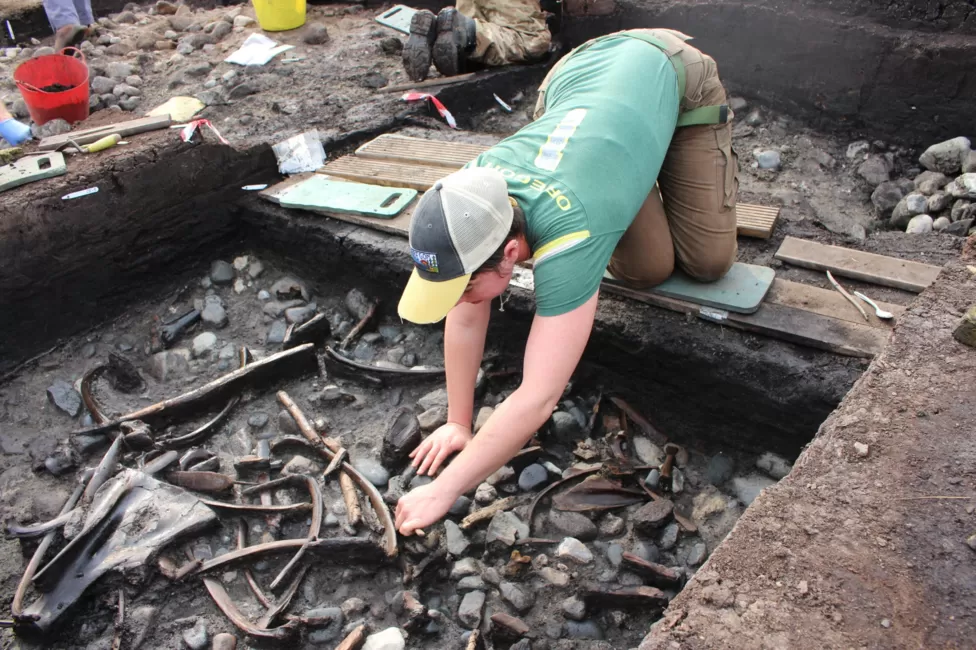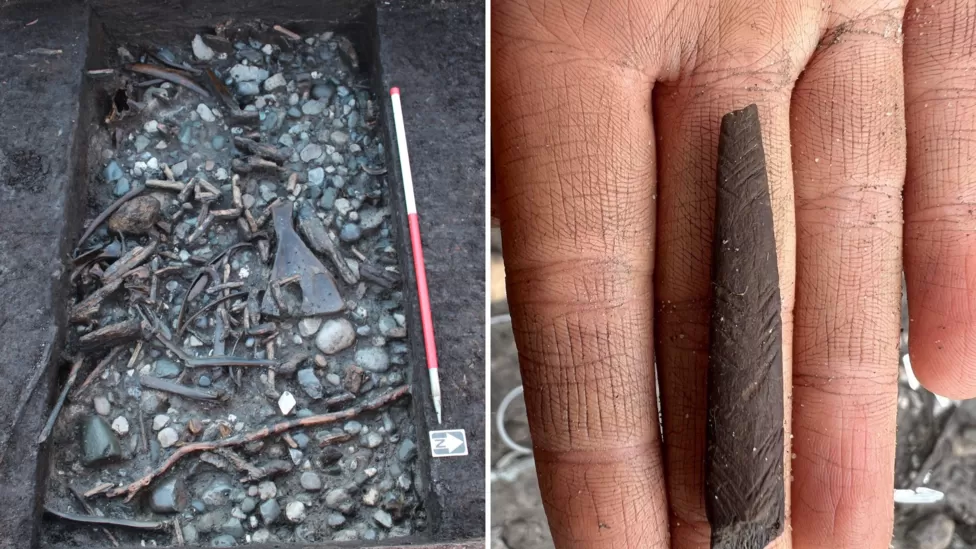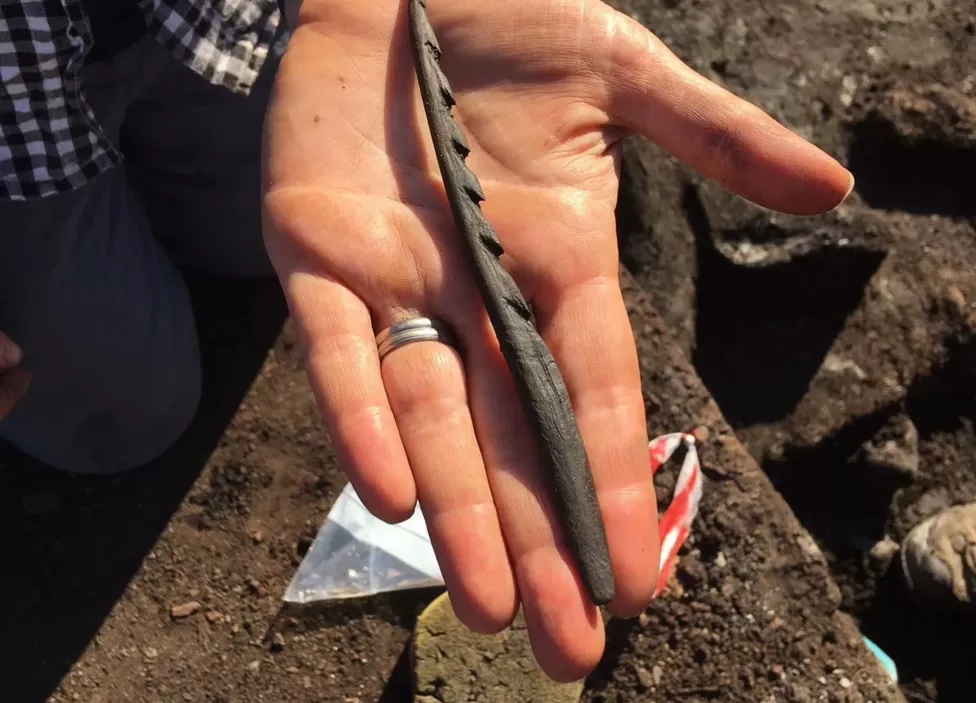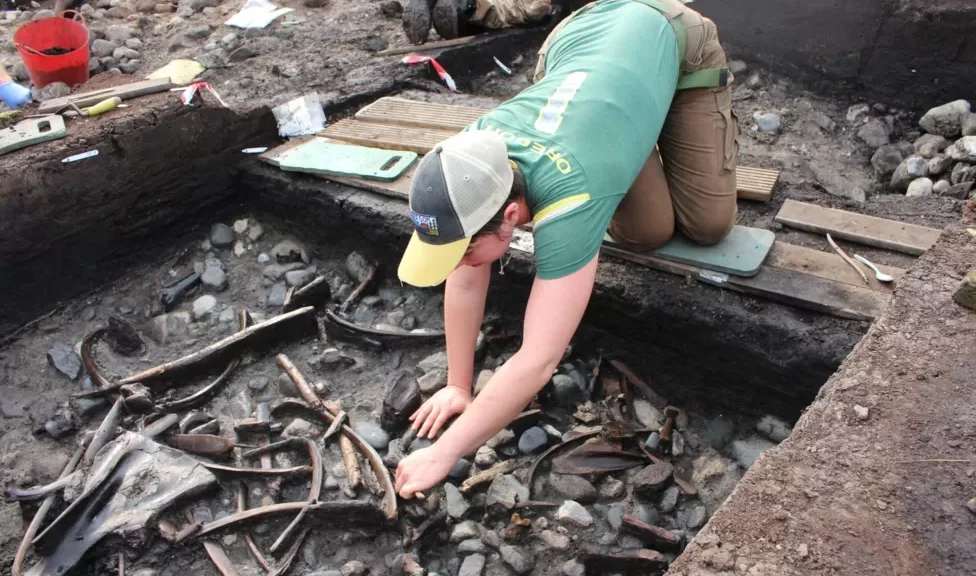Mesolithic Artifacts Unearthed in Northern England

Finds discovered at a Stone Age settlement unearthed in North Yorkshire have helped shed new light on the lives of hunter-gatherers living around 10,500 years ago.
Archaeologists uncovered animal bones, tools and weapons, along with rare evidence of woodworking, during excavations at the site near Scarborough.
Experts said the items suggested their owners were far from “struggling to survive”, as many may imagine of people alive at the time.
Dr Nick Overton, from the University of Manchester, said the excavation had enabled them to learn more about “these early prehistoric communities”.
The site originally lay on the shore of an island in an ancient lake and dates to the Mesolithic period, according to the team from the universities of Manchester and Chester, with thick deposits of peat gradually burying and preserving the site over thousands of years.
“It is so rare to find material this old in such good condition,” Dr Overton said.
“The Mesolithic in Britain was before the introduction of pottery or metals, so finding organic remains like bone, antler and wood, which are usually not preserved, are incredibly important in helping us to reconstruct peoples’ lives.”

The team said the dig uncovered evidence of a wide range of animals being hunted, including elk and red deer, and smaller mammals such as beavers and water birds.
The bodies of hunted animals were also butchered and parts of them intentionally deposited into the wetlands at the island site, they said.
Hunting weapons made of animal bone and antler had also been decorated and taken apart before being deposited on the island’s shore.
This, the archaeologists believed, showed that Mesolithic people had strict rules about how the remains of animals and objects used to kill them were disposed of.

Dr Amy Gray Jones, from the University of Chester, said: “People often think of prehistoric hunter-gatherers as living on the edge of starvation, moving from place to place in an endless search for food.
“But here we have people inhabiting a rich network of sites and habitats, taking the time to decorate objects, and taking care over the ways they disposed of animal remains and important artefacts.
“These aren’t people that were struggling to survive. They were people confident in their understanding of this landscape, and of the behaviours and habitats of different animal species that lived there,” she added.
The excavations are featured in episode five of the new series of Digging for Britain.
